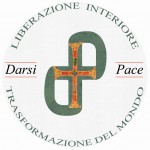“The period that lacks its foundation is hanging over an abyss. Granted that there can be a turning point for this period, this can happen only if the world turns upside down, that is, upside down beginning from the abyss” (Martin Heidegger).
The favorable time for a change
The ‘Peace-Path’ groups are reviving the Christian experience of the new birth, using all the learning instruments that the modern world and in particular XX century offered.
In the cultural traditions of philosophy and art, from psychoanalysis to contemporary physics, through the crisis of democracy, within the catastrophes of totalistic regimes and the world wars we can find the signs of the terminal desegregation of self-centered self that reveals the urgency of a new birth.
The entire history of the last centuries’ modern world, more precisely, the period from the Reform onwards, can be interpreted as a preparation for this anthropological turning point in which we live in. This is the period in which Christianity goes through a bitter internal crisis purging itself of all the self-centered elements that have characterized the life of faith up until now.
“We can state with absolute certainty that a new historical period is beginning now. (…) Our existence reaches the point of the absolute option and its consequences: the highest possibilities and extreme dangers” (Romano Guardini).
If the mystery of Christ’s New Humanity reemerges with a new power; firstly it asks the Christian churches to be purified and renewed. The prophetic gesture of John Paul II, on the first Sunday of Lent of 2000 asking for forgiveness of all the sins committed by the Church over the centuries, marks in that sense a real and new beginning in the history of Catholic Christianity.
“On today’s first Sunday of Lent, I see an appropriate opportunity for the Church, gathered spiritually around the Successor of Peter, to implore divine forgiveness for the sins of all the believers. We forgive and ask forgiveness!” (John Paul II).
Therefore, the ‘Peace-Path’ groups are involved in this phase of great labor within the Catholic church, in order to collaborate with its profound reform, completely faithful to its Tradition, which is according to its nature ‘permanent renewal’. In fact, Benedict XVI emphasized in May of 2011: “Not so rarely tradition and progress are sadly set against each other. In reality however, the two concepts integrate each other: the tradition in itself includes in some way progress”.

Recent Comments